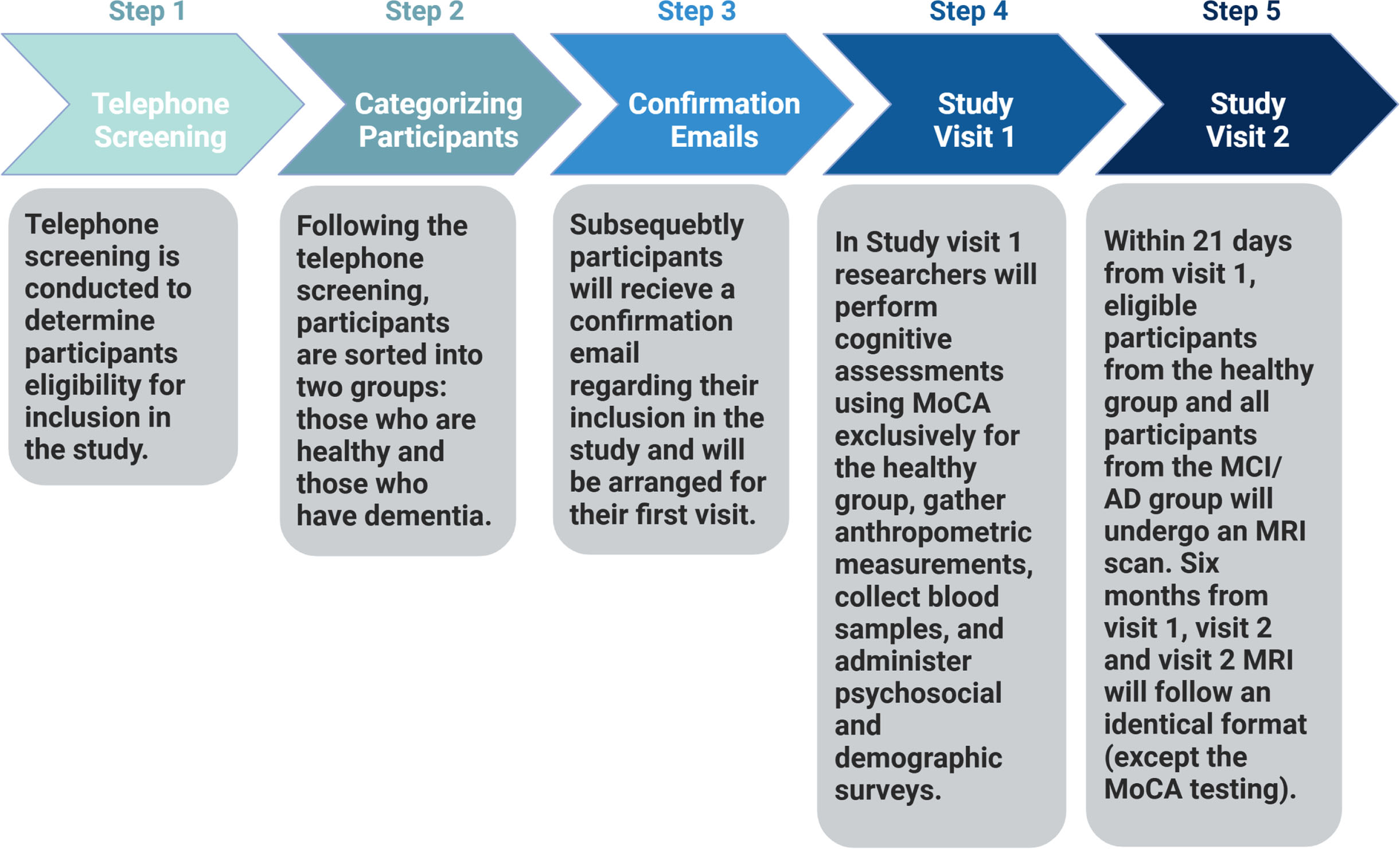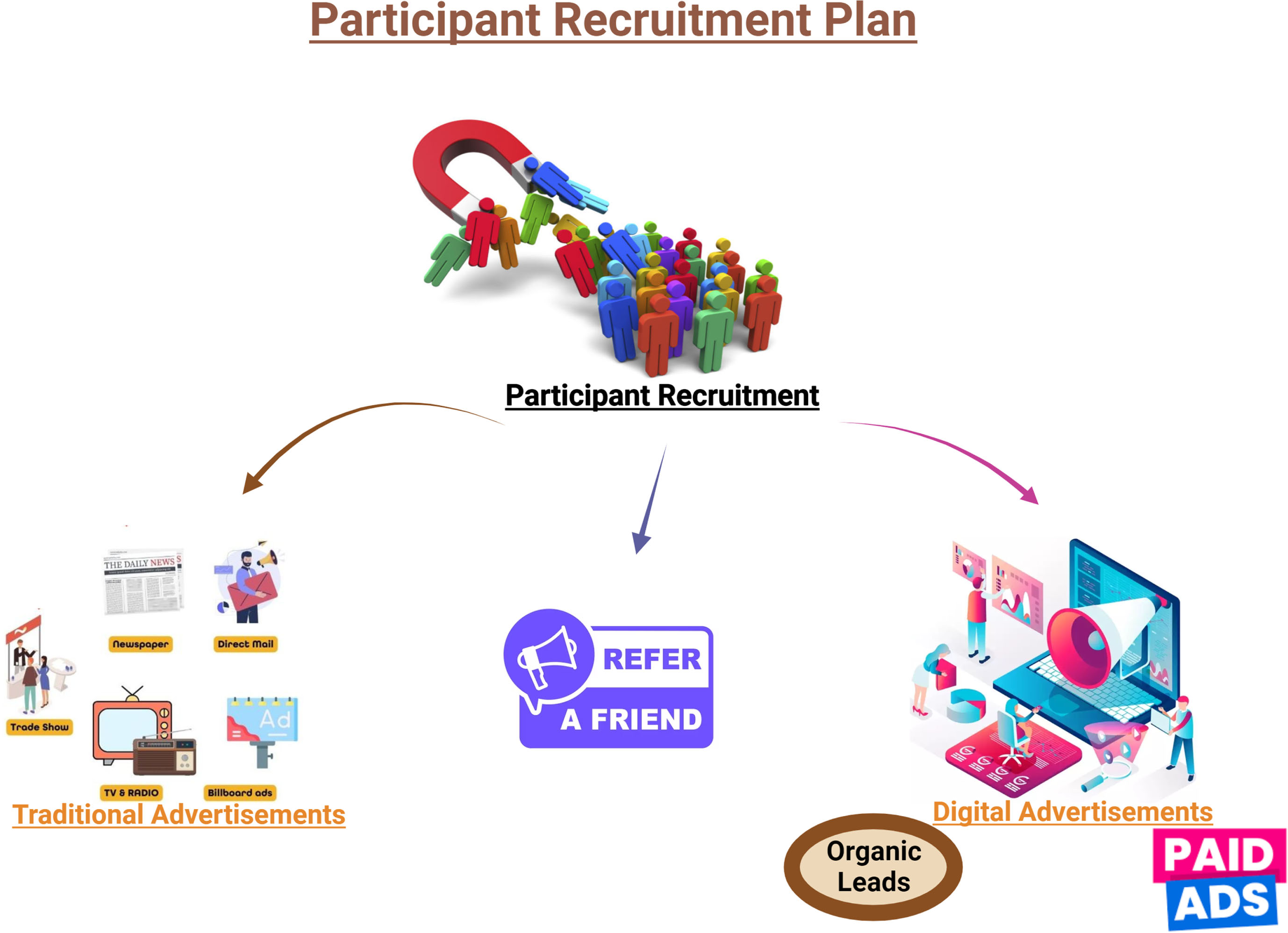Is Effective Recruitment Strategy Critical to Assess Brain Cognitive Function of Super Agers in Rural West Texas
Abstract
Our commentary aims to elucidate the importance of participant recruitment strategy in healthy brain aging study, particularly in rural West Texas, where more than 50% of the population are Hispanics and Latinos. The objective of our health aging study is to investigate the possible influence of biological, sociodemographic, and lifestyle factors on the occurrence of chronic diseases and dementia in the aging populations of West Texas. The success of this initiative is, in large part, reliant on high-quality, effective recruitment of participants. To that end, we propose an increase in our strategic recruitment efforts for both healthy, cognitively superior agers as well as those with mild cognitive impairment and patients with Alzheimer’s disease in rural west Texas. We discussed, multi-advertising approaches, including ads in the local newspapers, local TV Channels and poster boards in senior centers.
Dementia encompasses brain disorders characterized by shared behavioral and cognitive deficits, affecting memory, communication, focus, reasoning, and visual perception, and Alzheimer’s disease (AD) is the most prevalent form of dementia [1]. AD is a progressive neurological disease that is characterized by loss of memory and multiple cognitive impairments, including inability to perform basic tasks. Symptoms usually manifest in individuals during the later stages of life. Currently, there are no early detectable biomarkers and/or therapeutic targets to delay disease onset and progression, particularly in late-onset AD patients. Prioritizing lifestyle, along with exploring clinical trials, is paramount as it significantly influences an individual’s cognitive and overall health [2].
Studying the unknown factors leading to cognitive health in individuals living past 100, as opposed to those facing cognitive impairment, diabetes, and depression in their 50 s and 60 s, is essential. Therefore, developing effective preventative measures in our elderly and emphasizing the importance of a normal healthy brain and body, may help delay or even prevent cognitive decline. Ongoing health aging study aims to investigate the possible influence of biological, sociodemographic, and lifestyle factors on the occurrence of chronic diseases and dementia in the aging population of West Texas [3–8].
Currently, Reddy Laboratory at Texas Tech University Health Sciences Center is actively involved with recruiting elderly individuals ages 60–90 and collecting information about demographic, lifestyle, genetic, epigenetic, and cognitive health. Cognitive health will be measured by administrating the Montreal Cognitive Assessment (MoCA). The research plan under consideration is a continuing initiative within our laboratory [8]. Additionally, in the wet lab, we will also study circulating cell-free DNA from serum samples and the double-stranded breaks in the buffy-coats from study participants (cognitively healthy and mild cognitively impaired subjects and AD patients). Refer to Fig. 1 for an overview of our research strategy.
Fig. 1
The research methodology illustrates the recruitment of participants from varied sources, their subsequent categorization based on inclusion/exclusion criteria, and the progression through study visits. The selected participants will undergo enrollment and informed consent, leading to Study Visit 1, which involves specific data collection points, and Study Visit 2, scheduled six months after their initial visit.

The proposed research aims to identify the determinants influencing cognitive health in individuals aged 60–90, distinguishing those aging without cognitive impairments from those developing chronic conditions and cognitive decline. While a small percentage of early-onset Alzheimer’s cases result from specific genetic mutations, causal factors for most late-onset cases remain elusive, potentially involving lifestyle elements such as diet, exercise, environmental exposure, genetics [1], and other variables [8–10]. An unhealthy diet and physical inactivity are particularly implicated in the progression of AD.
Conduct cognitive assessments on individuals aged 60–90, comparing cognitively healthy participants (n = 4,000) with those experiencing mild cognitive impairment (MCI) to severe AD (n = 250). We anticipate a strong association between high cognitive test scores and superior cognitive health in the elderly population of West Texas, using the MoCA test. of West Texas. The success of this initiative is, in large part, reliant on high-quality, effective recruitment initiatives. To that end, we propose an increase in our strategic recruitment efforts for both healthy, cognitively superior agers as well as those with mild cognitive impairment in rural west Texas, refer to Fig. 2.
Fig. 2
The initial stage of the recruitment planning process. It involves finding people who fit a particular target in the study. There are three primary ways to identify potential recruits. The first method is through personal referrals, where individuals refer friends, colleagues, or acquaintances who they believe would be suitable for the study. This approach often proves effective as it leverages existing relationships and trust. The second method involves traditional advertisements, which are typically disseminated through print media, job boards, or other conventional channels. These advertisements help reach a wider audience and attract individuals who may not have direct connections to our organization. Lastly, digital advertisements have emerged as a valuable tool in recruitment planning. Through various online platforms, such as social media, search engines, or specialized job portals, we can target specific demographics and reach a larger pool of potential candidates.

We will continue our relationship with Geriatric Clinicians Dr. John Culberson and Dr. Keya Malhotra for referring their patients with cognitive impairment. Advertising in the local newspaper, the Lubbock Avalanche-Journal, has been highly productive. Active seniors are still engaged readers of the local newspaper, although the efficacy of this approach will decrease soon as print media transitions to completely digital delivery options. However, while there is still a print option available in the area, we will take advantage of it as a recruitment vehicle. Quarter page ads will run four times monthly recruiting superior healthy aging populations and caregivers of those with cognitive impairment.
Utilizing traditional advertising, we’ll feature in community magazines like The Golden Gazette and Latino Lubbock Magazine, reaching over 20,000 Hispanics, 65% of whom are over 60. Targeting healthy aging Hispanics and caregivers of those with cognitive impairment. Exploring additional options, such as a banner ad on The Golden Gazette’s website, will be measured for effectiveness. Leveraging local television, a quarterly appearance on KLBK’s Trends & Friends will highlight study benefits and participation information in a three-minute segment.
The volunteer opportunity will be listed on the Volunteer Center of Lubbock, and an editorial by Dr. Reddy in The Avalanche Journal will underscore the study’s significance, impact, and provide information on volunteering. In addition to traditional media, we will leverage targeted Facebook advertising to reach the connected aging population, measuring response for effectiveness. Initial demographics show 25–30,000 active Facebook users aged 60 + in Lubbock and a 25-mile radius, potential participants for this and other Internal Medicine studies. A postcard campaign promoting study benefits, incentives, and contact details will be distributed widely through collaboration with the TTUHSC Printing Center.
The next steps will include outreach to develop a dynamic distribution plan. Locations where postcards will be available include but are not limited to: Meals on Wheels (postcards delivered to every meal recipient as well as volunteers), Silver Sneakers classes (multiple locations in Lubbock), and front desks (and potentially resident mailboxes) of all areas independent living, assisted living and memory care facilities, with initial focus on Carillon, Raider Ranch, and the network of Brookdale care facilities. Other opportunities at area facilities include sponsoring a breakfast or other event and sharing this opportunity with residents or attending quarterly events as a speaker.
The City of Lubbock provides daily transportation and programming for community members 60+. Dissemination of recruitment materials for this study will be a great opportunity to begin to build a meaningful partnership with the city. Postcards will also be made available to members of the UMC Seniors are Special Program and Covenant’s Senior Care initiative.
Partnerships with area organizations will be either developed or strengthened. Targeted organizations include the Alzheimer’s Association, South Plains Association of Governments (SPAG) Area Agency on Aging, and Texas Tech University’s Osher Lifelong Learning Institute (OLLI – continuing education programming for 50+). Each of these organizations offers a potential distribution point for the postcard campaign as well as under utilized opportunities for partnerships, collaboration, and community outreach.
We also have plans to launch a refer-a-friend campaign to boost participant recruitment through word of mouth, encouraging sharing within social networks and communities.
We aim to establish and expand a database of contact information for service providers catering to the Latino population in our area, focusing on senior care, including physicians specializing in elder care. United Supermarkets, the largest grocery provider, will also be recruited to serve as a community outreach point, utilizing in-store events and promotional materials. Amigos, deeply rooted in Lubbock’s Hispanic community, offers an opportunity to engage area seniors. Additionally, our study extends to the surrounding rural community, utilizing local newspapers and collaborating with the Texas A&M AgriLife Extension Service offices in each county for outreach among rural elderly.
Strategic Research and the One Health initiative are current objectives in the strategic plans of both Texas Tech University and Texas Tech University Health Sciences Center. Recently renamed to THRIVE! Investing in our Communities, this section of the Strategic Initiatives plan ([email protected]) is focused directly on programs impacting our rural areas.
AUTHOR CONTRIBUTIONS
Malcolm Brownell (Data curation; Formal analysis; Investigation; Methodology); Ujala Sehar (Data curation; Formal analysis; Investigation); Sudhir Kshirsagar (Data curation; Formal analysis; Investigation); Hemachandra Reddy (Conceptualization; Data curation; Formal analysis; Funding acquisition; Investigation; Methodology).
ACKNOWLEDGMENTS
The authors have no acknowledgments to report.
FUNDING
The research and relevant findings presented in this article was supported by the National Institutes of Health (NIH) grant, AG079264.
CONFLICT OF INTEREST
The authors have no conflict of interest to report.
DATA AVAILABILITY
No extensive datasets are linked to this manuscript, and the reagents mentioned in this research are accessible upon reasonable request.
REFERENCES
[1] | Maloney B , Lahiri DK ((2016) ) Epigenetics of dementia: understanding the disease as a transformation rather than a state. Lancet Neurol 15: , 760–774. |
[2] | Kivipelto M , Mangialasche F , Ngandu T ((2018) ) Lifestyle interventions to prevent cognitive impairment, dementia and Alzheimer disease. Nat Rev Neurol 14: , 653–666. |
[3] | Reddy PH ((2019) ) Lifestyle and risk factors of dementia in rural West Texas. J Alzheimers Dis 72: , S1–S10. |
[4] | George EK , Reddy PH ((2019) ) Can healthy diets, regular exercise, and better lifestyle delay the progression of dementia in elderly individuals? J Alzheimers Dis 72: , S37–S58. |
[5] | Morton H , Basu T , Bose C , Reddy PH ((2022) ) Impact of chronic conditions and dementia in rural West Texas: a healthy aging study. J Alzheimers Dis 87: , 33–49. |
[6] | Basu T , Sehar U , Selman A , Reddy AP , Reddy PH ((2023) ) Support provided by caregivers for community-dwelling obesity individuals: focus on elderly and Hispanics. Healthcare (Basel) 11: , 1442. |
[7] | Culberson JW , Kopel J , Sehar U , Reddy PH ((2023) ) Urgent needs of caregiving in ageing populations with Alzheimer’s disease and other chronic conditions: support our loved ones. Ageing Res Rev 90: , 102001. |
[8] | Basu T , Sehar U , Malhotra K , Culberson J , Khan H , Morton H , Orlov E , Brownell M , Reddy PH ((2023) ) Healthy brain aging and delayed dementia in Texas rural elderly. Ageing Res Rev 91: , 102047. |
[9] | Singh S , Mahajan M , Kumar D , Singh K , Chowdhary M ((2023) ) An inclusive study of recent advancements inAlzheimer’s disease: A comprehensive review. Neuropeptides 102: , 102369. |
[10] | Kalaria RN , Maestre GE , Arizaga R , Friedland RP , Galasko D , Hall K , Luchsinger JA , Ogunniyi A , Perry EK , Potocnik F ((2008) ) Alzheimer’s disease and vascular dementia in developing countries: prevalence, management, and risk factors. Lancet Neurol 7: , 812–826. |




